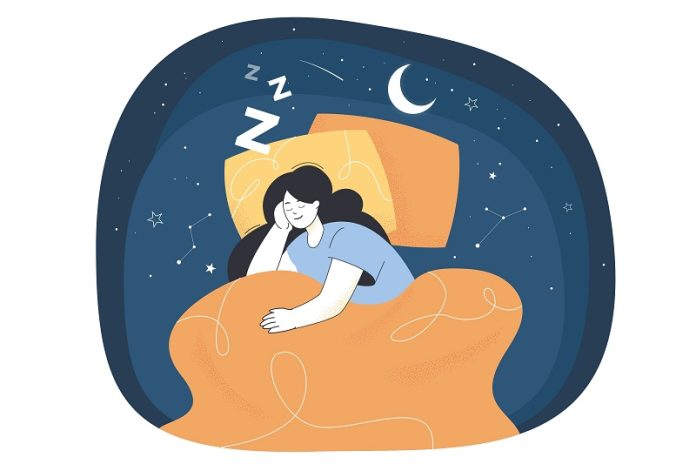
Getting good sleep might be as simple as moving your body every day, according to new research from The University of Texas at Austin.
The study found that people who exercised more frequently—ideally every day—experienced better quality sleep, particularly the deep, restorative kind that helps improve mood and mental health.
Published in the Journal of Physical Activity and Health, the study followed UT Austin students who wore Fitbits for several months to track their sleep and physical activity.
Unlike many earlier studies that focused on how long people exercised, this research explored how often people moved.
It turns out that spreading out activity over the week may be more beneficial than cramming all your workouts into the weekend.
“We wanted to understand whether exercising a little every day was better for sleep than being a weekend warrior,” said Benjamin Baird, a research assistant professor of psychology and co-lead of the study.
“And for sleep health, how often you exercise really does matter.”
The research builds on previous findings that link physical activity to non-REM sleep, the deep sleep that occurs earlier in the night and plays a key role in restoring the body and mind.
Students who exercised more frequently had more of this deep sleep—which is exactly what helps people wake up feeling refreshed, energized, and in a better mood.
Interestingly, even a short amount of movement helped. As little as 10 minutes of moderate to vigorous activity a day was enough to make a difference.
Moderate activity was defined as movement that gets you breathing harder but still allows for conversation—like brisk walking or biking at a comfortable pace. Even light activity, such as taking regular walking breaks or standing up more during the day, was linked to better sleep patterns and improved mood the next day.
Participants who moved more not only slept better, but they also reported feeling more energetic and less stressed. Baird said that improvements in deep sleep were directly tied to better mood and energy levels the following day.
What makes this study stand out is its use of wearable technology. Instead of short-term lab-based experiments, the researchers tracked people’s real-life behavior and sleep over several months. This long-term, everyday data gives a clearer picture of how consistent physical activity influences sleep and mental well-being over time.
The findings are part of the Whole Communities—Whole Health initiative, a large research project focused on understanding health in real-world settings. The team is now preparing to test whether these results hold true in a wider population, including people of different ages and lifestyles.
Currently, health guidelines from the CDC and WHO recommend at least 150 minutes of exercise per week but don’t specify how to space out that time. This new study suggests that spreading activity across the week may be better for sleep than doing it all at once.
“Sleep is when your brain resets, stores memories, and clears out waste,” said Chris Corral, co-leader of the study. “Better sleep means better brain health and may reduce the risk of chronic illness and depression.”
In the end, the message is simple: Move a little every day. It doesn’t have to be intense. Even light activity counts, and something is always better than nothing.



